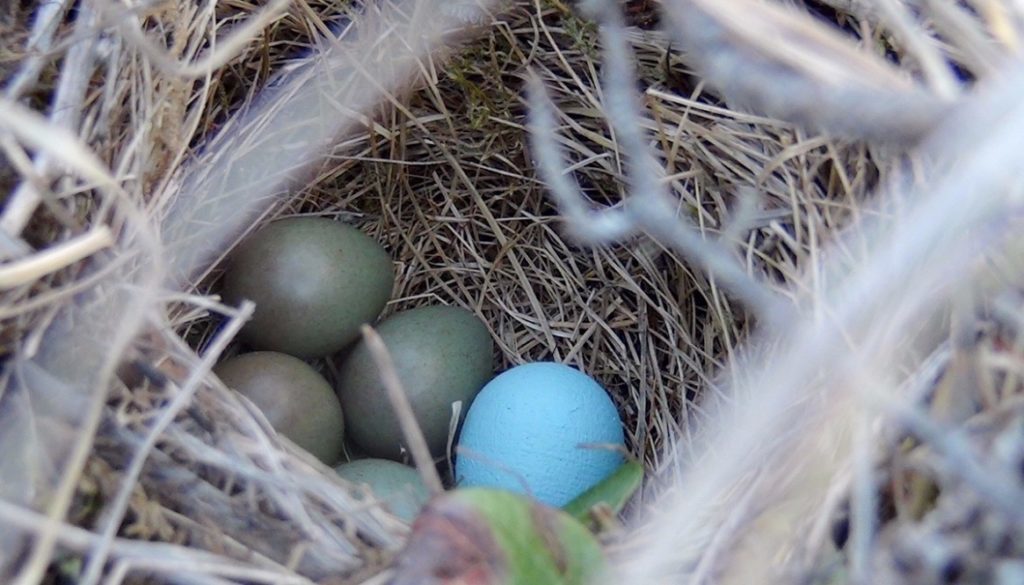On the Nature of the Chaotic Cuckoo
In our world, some things occur that are quite fascinating and, once examined, will blow your mind! Sometimes just asking why it happens will take you an indefinite path to the unknown. In this post, I will talk about the behavior of a bird called the British cuckoo that will have you question specific aspects of life. This will, in hope, make you appreciate the world we live in a bit more. And before I get into the topic, I want to state that I am not going to affiliate my blog with any religious stances. My writings are merely thoughts reflecting upon the fascination that I have come across through an education.
So, let’s begin.
What is a Gene?
The gene is simply a storage device that contains basically your identity. Things such as your hair color, body shape, how you think, and even how your maybe future children might look like are stored in this so-called gene. It basically makes you who you are. We can take it a step further and state that every single animal you ever encountered will contain genes similar to those that you and I have!

Its Selfish Portrayal
The gene, however, is not merely a trait holder, instead it to many believe is the brains behind natural selection and the so-called quote “survival of the fittest.” In the book, The Selfish Gene, Richard Dawkins, argues that the gene itself is an organism driving forward natural selection. Every single living thing you have ever encountered, as he argues, is just a mechanism that has been evolving for years to protect these so-called genes. These are the findings that many evolutionary biologists have concluded through their academic careers, including Richard himself.
Yes, this idea is extreme. Mainly because Richard pushes aside all moral actions (good acts) within his description of the gene. There is no decision making within this evolutionary idea. It is all based on behaviors that will benefit the reproduction of these genes to future generations. This is the main reason he calls his famous book, The Selfish Gene, because living things seem to enact in ‘selfish behaviors’ to survive. For example, let’s take a look at the British Cuckoo bird.
The Fascinating Cuckoo
The life story of a baby cuckoo begins when the female mom lays its eggs in different types of bird nests. Yes, mom goes out of its way to lay eggs in non-cuckoo bird nests. (Mom of the year in my opinion) But anyways, the nests can be that of a Robin, a Pied Wagtail, or even a Reed Warbler! These cuckoos also manage to lay eggs that look similar to those of the host. How? Well, keep in mind that evolution plays a role in this.
The weirdness does not stop there. The baby cuckoo has a short incubation time. Usually faster than eggs of the host. As soon as it hatches, the baby without any idea of the world around him/her throws the eggs out of the nest. What it does is that it goes underneath an egg, fits it in a hollow portion of its back, and then slowly with aggressiveness does the best of its ability to push the egg out of its home. It continues this until it has the whole nest to itself. What a selfish creature, am I right?
Now, this all goes back to Richard Dawkins’s argument that genes seem to be driving forward life. It is not that the cuckoo wants to kill these innocent unborn babies. Instead, it is merely the genes embedded in them that are driving them to do it. This, in itself, benefits the gene by allowing the baby cuckoo to be raised by other parents. At the same time, the mom of the year goes and finds the chance to reproduce again. Which, of course, is a win-win for the cuckoo gene.
Final Thoughts
When I first came across this, I became fascinated by the fact that nature seems to play itself out like this. The simple act that there are these genes that are doing whatever they can to survive makes me question various fundamental questions of life. Such as: Why has life flourished in this manner? Where is evolution currently taking nature? Can this framework help us understand our society in a larger context? Surprisingly, all these questions can be answered through the gene evolutionary framework. Nevertheless, the gene itself has become immortal in the sense that it is the organism that has won the survival game.
Though, there seems to be a constant battle between the genes of one living thing and another. The cuckoos, for example, can often be outsmarted by the host by noticing a wrong egg in their nest and throwing it out before it hatches. These findings have made biologists conclude that this is one of the various snapshots of evolution currently taking place. Only one species will win. Quite an appealing thought, isn’t it?
Overall, I am not implying that this philosophy must be taken to heart. All I wanted to get across here is that science has derived some very fascinating ideas. The Selfish Gene, for example, was a book that was not only a national bestseller, but it helped flourish a brand-new scientific theory, which thousands of scientists now partake in. To end this blog post, I just want to say that reading about science and philosophy topics, like this one, will challenge your ideas and assumptions, but in the end, just asking why will take you through an insightful journey (trust me).
